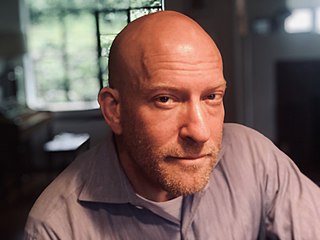A Quote by Philip Larkin
You have to distinguish between things that seemed odd when they were new but are now quite familiar, such as Ibsen and Wagner, and things that seemed crazy when they were new and seem crazy now, like 'Finnegans Wake' and Picasso.
Related Quotes
Best to let the broken glass be broken glass, let it splinter into smaller pieces and dust and scatter. Let the cracks between things widen until they are no longer cracks but the new places for things. That was where they were now. The world wasn't ending: it had ended and now they were in the new place. They could not recognize it because they had never seen it before.
Back in the autumn I had awakened to a growing darkness and cacophony, as if something in the depths were crying out. A whole chorus of voices. Orphaned voices. They seemed to speak for all the unlived parts of me, and they came with a force and dazzle that I couldn't contain. They seemed to explode the boundaries of my existence. I know now that they were the clamor of a new self struggling to be born.
Doing research for 'Penumbra,' I read quite a bit about the early history of printing, and the more I did, the more it sounded like... the Internet today. There was crazy competition and upheaval; there were constant arguments about new techniques, new materials, new machines; and, of course, there were fortunes to be made.
To be born again is, as it were, to enter upon a new existence, to have a new mind, a new heart, new views, new principles, new tastes, new affections, new likings, new dislikings, new fears, new joys, new sorrows, new love to things once hated, new hatred to things once loved, new thoughts of God, and ourselves, and the world, and the life to come, and salvation.
I was always very curious as a young man about why older writers who I met seemed so indifferent to what was going on, whereas I, in my 20s, was reading everything. Everything seemed important. But they were only interested in the writers they admired when they were young, and I didn't understand it then, but now, now I understand it.
Housing in New York seemed to fit Norman Lear. In addition, his shows confronted all kinds of social issues - racial separation and prejudice being foremost among them. The Evans of Good Times were the first black family to be the focus of a primetime American TV show. A lot of the people we came across in filming were familiar with the role Norman played in catalyzing important national conversations about race. They seemed grateful to him for trying to move the needle.
After what seemed like an eternity, we finally reached the summit just as the sun was rising. I couldn't believe that we had actually done it. We were standing at the highest point in all of Africa, looking down at the clouds below us, with the sun directly in front of us, its rays welcoming us to the beginning of a new day. It didn't seem like this was something that humans were meant to experience, yet here we were
The bourgeois thinkers of the eighteenth century thus turned Aristotle's formula on its head: satisfactions which the Greek philosopher had identified with leisure were now transposed to the sphere of work, while tasks lacking in any financial reward were drained of all significance and left to the haphazard attentions of decadent dilettantes. It now seemed as impossible that one could be happy and unproductive as it had once seemed unlikely that one could work and be human.







































